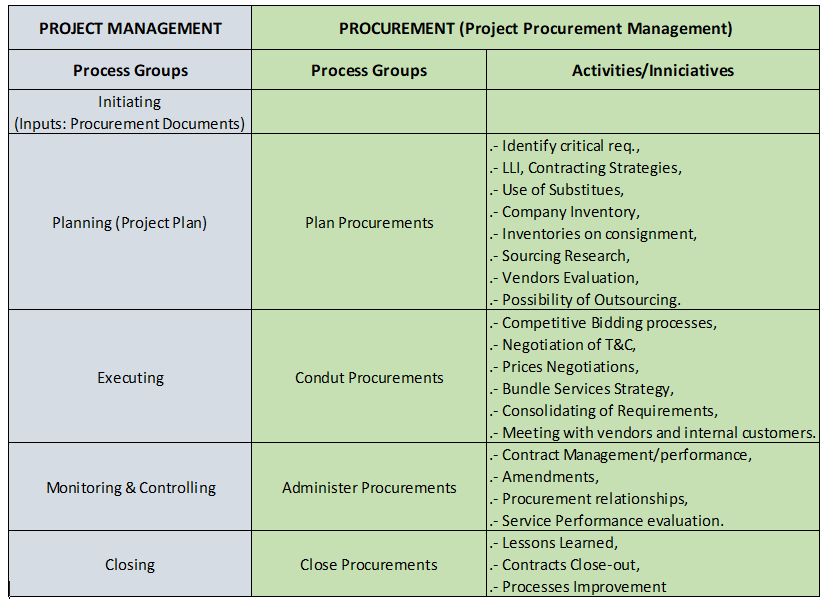PROJECT
According with the Project Management Body of Knowledge guide (PMBOK®), fourth edition, a Project is a temporary endeavor undertaken to create a unique product, service, or result. The temporary nature of projects indicates a definite beginning and end. The end is reached when the project’s objectives have been achieved or when the project is terminated because its objectives will not or cannot be met, or when the need for the project no longer exists.
PROJECT MANAGEMENT
Project Management is the application of knowledge, skills, tools, and techniques to project activities to meet the project requirements. Project Management is achieved through the proper application and integration of the 42 logically grouped project management processes comprising the 5 Process Groups which are: Initiating, Planning, Executing, Monitoring and Controlling, and Closing. Effective project management requires planning, communication, and task management. But, do you know all the project management knowledge areas?. They are listed as follows:
- Project Integration Management
- Project Scope Management
- Time Management
- Cost Management
- Quality Management
- Human Resources Management
- Communications Management
- Risk Management
- Procurement Management
- Stakeholders Management.
PROJECT PROCUREMENT MANAGEMENT
Project Procurement Management is one of the Project Management Knowledge Areas and includes the process necessary to purchase or acquire products, services, or results needed from outside the project team to perform the work. Project Procurement Management includes the contract management and change control processes required to develop and administer contracts or purchase orders issued by authorized project team members.
The Project Procurement Management processes include:
- Plan Procurements: The process of documenting project purchasing decisions, specifying the approach, and identifying potential sellers (Note of the Author: Annual Procurement or Contracting Plan).
- Conduct Procurements: The process of obtaining seller responses, selecting a seller, and awarding a contract.
- Administer Procurements: The process of managing procurement relationships, monitoring contract performance, and making changes and corrections as needed (Note of the Author: Contract Management).
- Close Procurements: The process of completing each project procurement (Note of the Author: Procurement and Contract Close-Out).
See below for a comparison between the philosophy of Project Management (process groups) and Procurement. Awesome, there are many coincidences. So, Procurement can be approached as Project Management.


